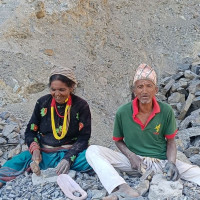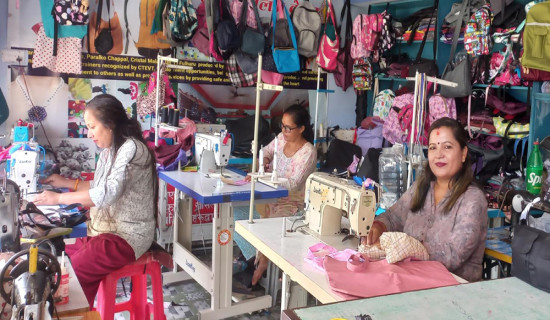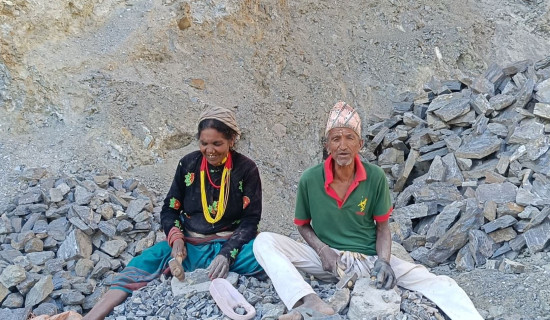- Tuesday, 23 September 2025
Enhance Tourism Infra
Scenic beauty is one of many things Nepal is endowed with. From mesmerising mountains stretching from east to west to breathtaking greenery and tightly interwoven cultural heritage, the country is blessed with unique tourism products. Naturally, with the availability of countless tourist attractions, a country has a great potential to develop its tourism sector by attracting a large number of tourists, both domestic and foreign, for the sustainability of local and national economies. When there is a huge potential to drive changes and provide job opportunities, people will likely pursue it, and Nepalis are no exception.
Presently, the tourism sector is witnessing positive signs as the declining number of visitors is gradually surging after having initially been hit by COVID-19 and followed by sporadic travel accidents. While it is a promising trend that one of the largest revenue-generating sectors is rejuvenating and giving impetus to various other industries, sadly, from hard-working tourist guides to ambitious hotel management students, everyone involved in this sector appears frustratingly dissatisfied and discontent.
Despite having innumerable hotels and restaurants in every nook and corner of big cities in Nepal, hotel management graduates face challenges in finding good-paying jobs. A course consisting of a total of four years, with three years of theoretical study and one year of internship, drew a lot of attention when it was introduced, and subsequently, it saw a growing number of enrolments as many universities progressively began offering this newly introduced course far and wide. However, contrary to the widely popular notion, the course didn't equip students with the required practical skills to thrive in the real working environment, making them increasingly unemployed regardless of the knowledge learned.
Although witnessing an overwhelming number of hotel management students makes one realise the integral role the tourism sector has played in creating jobs within the country, the current trend of seeking internships abroad, however, paints a sorry picture of the nation's limited tourism infrastructure, coupled with less exposure to hands-on learning experiences. When one undergoes a training programme, several important factors must be considered.
Firstly, communication skills become essential to showcase the knowledge acquired through various roles. In the majority of Nepal's hotel management colleges, the significance of communication skills is glaringly disregarded, even though it is an industry where people from different languages and cultures often stay for short and long durations. Secondly, there is a blatant ignorance of industry exposure activities, limiting students to the confines of the university.
Lastly, technological adoption is very few and far between in the classroom, leaving students with no choice but to continue studying regardless of their desire to learn holistically. Instead of focusing on traditional teaching pedagogy, they should enable interested students to learn about their potential future roles in different categories of hotels.
It is therefore imperative to revamp our existing teaching methods, as this day and age demands learning activities that are student-friendly and practical-oriented to make students competitive beyond the classroom. Only by shifting our focus from regressive to pragmatic and technology-friendly teaching models, in tandem with required action, can we provide a conducive environment for hotel management students to prosper and sustain their livelihoods in the days to come.

















